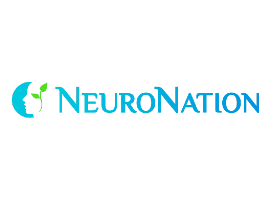Everywhere you look, books, blogs, websites and TV shows bombard us with tips on how to live, breathe, exercise or eat healthy. Your body’s health is well taken care of, but what about your brain?
We’re not saying there is no truth to these healthy lifestyle advisors. But with all the attention given to our body, we shouldn’t forget about our brain’s health and fitness. Many of us fall into a trap of habits every day that are bad for our brain. We have identified 5 habits that you should not pick up if your brain is near and dear to you:
1. Too much salt

After all these years of sugar-bashing, you can add another ingredient to the list of nutritional villains: salt. A study published in the journal of JAMA Neurology, exposed salt as one factor contributing to high blood pressure. And indeed, research has proven that a high intake of salt can increase the risk of high blood pressure, which in turn can lead to minor cognitive deficits and an increased risk of stroke [1]. A higher risk of stroke can cause quite severe damage to your brain.
2. Sleep deprivation

Science has not fully discovered yet to what extent your brain needs sleep. But do you really need science to figure this one out? Who doesn’t know the feeling after a bad night’s sleep? Lack of focus, a sluggish attention span, and a mood far from its best behaviour are just a few of the things to name here. On top of that, a continuous lack of sleep harms your memory too and has long-term effects on your brain. This is because in your sleep, mechanisms are hard at work, which rid you from toxic by-products that accumulate in your brain throughout the day. A lack of sleep means that these mechanisms cannot get sufficiently activated, and therefore fail to clean your brain from harmful substances. If these substances are not eliminated, they start to accumulate in your brain and can lead to a severe damage [2].
3. Bad hearing

Your precious ears are the ones suffering most from our noisy modern-day surroundings. How peaceful must it have been for ancient-time ears to be exposed to nothing more than the singing of birds or the occasional ringing of church bells. Today, your ears have a lot more to endure – a constant exposure to noise: subway’s roaring, cars honking, music in the supermarket, in your headphones, construction sites everywhere – the noise level is at a crazy high. And it’s driving your ears crazy too: according to latest findings, hearing impairments are increasing. A study conducted at the John Hopkins University found that hearing impaired people have a 30 – 40% higher risk of falling victim to cognitive deterioration [3]. So it’s smart to protect your ears as much as you can: for example, audiologists offer ear plugs that are tailored to your ears and protect you from too excessive noise levels.
4. Too much food

Now this one, you’re not going to like. And yes, maybe we were a little too harsh on all the lifestyle advice we talked about in the beginning. Tips regarding how to eat healthy are actually quite valuable for your body’s health, and for your brain too. A study published in the journal Neurology in 2012 examined 6000 people, who were on average 50 years old. 10 years later, the same participants were examined once again and the results showed that the ones who were overweight, had a 22% higher deterioration of their cognitive functions than their slimmer counterparts [4].
5. Loneliness

Being lonely doesn’t necessarily mean not having many friends. Sometimes even people who have many friends can be lonely. As with many things in life, here too, it’s the quality that matters. This being said, however, being alone can promote the feeling of loneliness, which causes stress and inflammatory processes in the brain. A study at the Rush University Medical Center in Chicago conducted with the participation of over 100 people, all aged 80+, revealed that those who had the least social contacts were suffering from the most severe cognitive deterioration [5].
Of course, your brain’s health depends on a variety of factors. And while you can’t control your genetical predisposition, you do have control over other things that can help you stay healthy. We want to encourage you to take care of your brain’s health and understand how important it is for your well-being. Your brain really is the most precious friend you have – treat it that way: a happy brain means a happy you.
From the lab to your smartphones
The science behind NeuroNation was made with the help of researchers from around the world. We have ongoing collaborations with renowned scientists; continuing to strengthen the efficacy of NeuroNation’s courses and exercises. Currently NeuroNation is being used in five scientific studies.
Sources:
1: Gottesman, R. F., Schneider, A. L. C., Albert, M., Alonso, A., Bandeen-Roche, K., Coker, L., Coresh, J., Knopman, D., Power, M. C., Rawlings, A., Sharrett, R., Wruck, L. M., & Mosley, T. M. (2014). Midlife Hypertension and 20-Year Cognitive Change. JAMA Neurology, 71, 10, 1218-1227.
2: Blackwell, T., Yaffe, K., Laffan, A., Ancoli-Israel, S., Redline, S., Ensrud, K. E., Song, Y., & Stone, K. L. (2014). Association of Sleep Quality with subsequent Cognitive Decline in Older Men. Sleep, 37 (04), 655-663.
3: Lin, F. R., Metter, J., O’Brien, R. J., Resnick, S. M., Zonderman, A. B., & Ferrucci, L. (2011). Hearing Loss and Incident Dementia. Archives of Neurology, 68(2), 214-220.
4: Singh-Manoux, A., (2012). Obesity phenotypes in midlife and cognition in early old age. Neurology, 79 (8), 755-762.
5: Hawkley, L. C., & Cacioppo, J. T. (2010). Loneliness Matters: A Theoretical and Empirical Review of Consequences and Mechanisms. Annuals of Behavioral Medicine.




